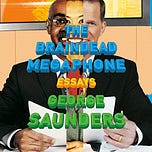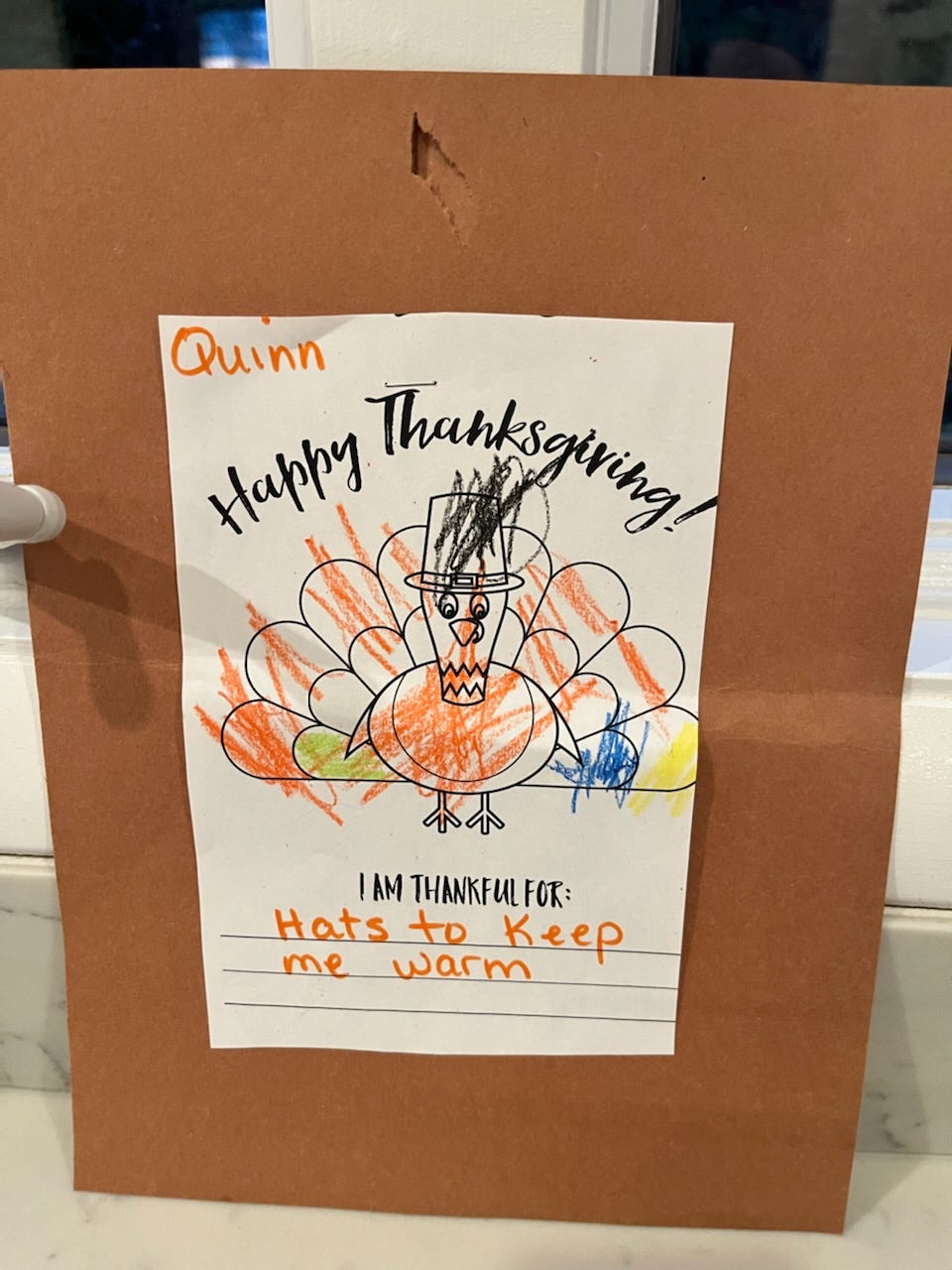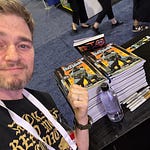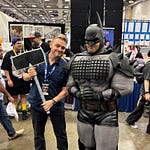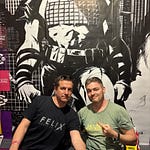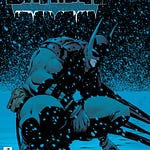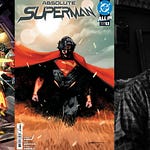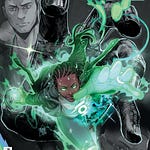Hey guys, it’s Scott.
It's the Friday after Thanksgiving. And I just wanted to do a quick post to give you an update on upcoming things and how I want to reframe using this site, given everything that's been going on at Twitter and just general priorities. So the big headline is, I'm going to be using this a lot more. So I hope that you are enjoying the content. I hope that you are having fun as part of the community, whether you're a free subscriber or a paid subscriber. But what I'm going to do, starting this week, really, is posting multiple times. I won't flood your inbox with emails because I know how annoying that can be. I'll do a big post on Friday that has the paid half and the free half like this post. But during the week, too, I'm going to do a Monday and a Wednesday post. Wednesday will likely be our teases from books coming up. Monday will probably be something that's more like answering your questions, books and movies and TV shows that I've encountered, anecdotal things, just fun to sort of introduce the week with some thoughts and inspiring things that I've discovered in terms of my reading or watching, that kind of stuff.
Anyway, so I'm going to be migrating over here a lot more. Tyler's already doing most of the posting, or at least half of the posting, on Twitter at this point. So it won't be a huge switch for me. But it will be a bigger commitment over here, and I'm excited to do that. I feel really proud of this community that we've built. I love my relationship with fans through Our Best Jackett. I feel as though it's allowed me to make deeper connections and have a better discourse all around. So people are asking why so many of us are leaving Twitter, or even if they're not asking, I think there's a misconception or a criticism that we're leaving because we think it's going to crash or we're leaving because it's sort of an alarmist, knee jerk impulse. And really, for me, at least, I'll only speak for myself, the reason that I've been kind of moving away from it and now I'm going to move a lot more away from it, is because when it was created, Twitter was sort of a platform that a lot of us fell in love with in spite of its design. It was in spite of itself, in spite of its own nature—limiting dialog to 150 characters, sometimes it just seems like, “Oh, just a fun limitation in a game” like Vine or that kind of stuff. But it really, I mean, George Saunders, one of my favorite writers of all time, he's got a great essay from, I don't know, maybe eight or nine years ago called The Braindead Megaphone, maybe even longer than that, honestly.
It's all about how different modalities of speech and linguistics in the last 15 years have kind of reduced dialogue, have forced us into patterns of thinking that are honestly much more obnoxious and self-aggrandizing, and I think resist long discourse or any kind of polemic. It's much more sound bites, it's much more who can grab the attention of the masses as quickly as possible? And that could be because the statement is crazy in terms of its opinions, it can be something funny, it can be something thought-provoking, but it has to be a soundbite. It can't be anything that allows you to live in it and process it or any of that. And so Twitter designed that way always felt like it was a negative force in terms of its architecture, that in its DNA was something that you had to fight against to make the platform valuable for yourself in some way, beyond just being amusing.
But what happened was, I think a lot of us loved the immediacy of it, the fluidity of it, the fact that it was deeply social. Out of all the social media platforms, it was social, it was interactive. So it was you talking to other people because you couldn't make big statements. I mean, they initially had TwitLonger and all this stuff that kind of fell apart. It just became conversation, and did it allow for, you know, long, valuable discourse? No, not at all. But it was a way of finding each other and it was a way of finding out about things that you might not have known about, for me, books and comics and movies and TV shows, and it's especially brought me into contact with lots of creators that I wouldn't have found otherwise. and I loved that as a resource. And it brought you really close to people you didn't think you could get close to—big stars and people that did work that you'd loved and all of that you we're all sort of in the same town square.
The negative aspects of Twitter have always been, again, the way that it constrains thought, diminishes attention span, encourages the loudest voice in the room. It constantly reminds me of this New Yorker cartoon from 2016, I think, that I loved where it was like a game show:
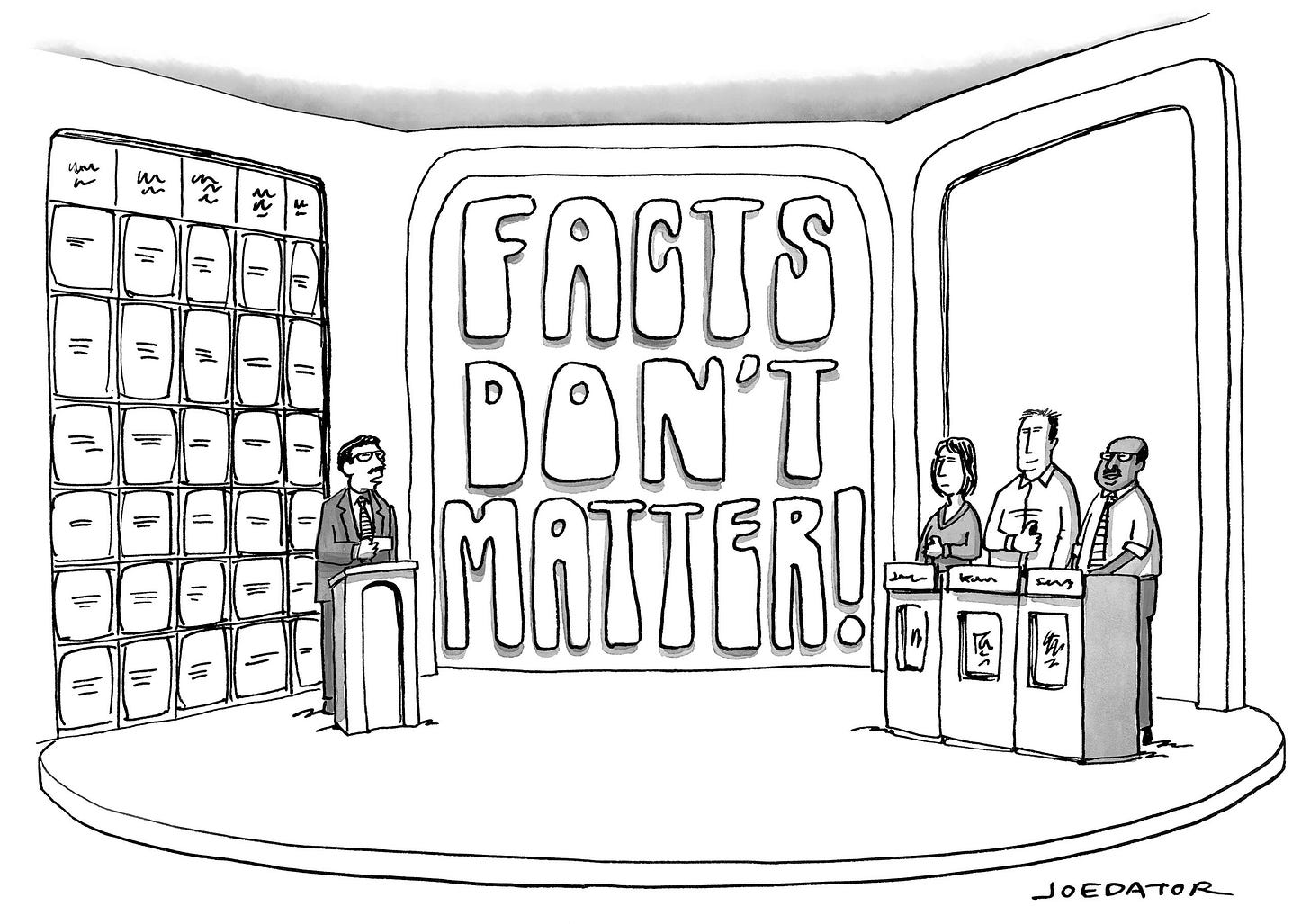
And it feels like that's the cultural state of things in a lot of ways here, is that we reward the most outrageous or loudest voice in the room. But the other negatives about Twitter were that it wasn't well regulated. There was a lot of harassment. As somebody who taught the DC Writers Workshop that brought in a lot of marginalized creators, I saw it firsthand, the way that there wasn't any kind of punitive reaction to people being horrible online. Also, there was an incredible amount of misinformation and rumor that could spread quickly. There was also a lot of mob rule, you saw that in multiple ways. And also it encouraged people to be performative. That was in 2018/2019. That's when I started to really move away from Twitter more, because I felt as though I was constantly keeping an eye on Twitter to make sure I was a part of everything being said all the time that I felt strongly about. But if I missed something, someone making a statement about something happening in comics or in the world that I felt strongly about, thenI felt very guilty. And it just felt like it was becoming performative versus doing real work.
And so I began to move away from it in those ways, but still hang on to it for the valuable aspects of it, which again, for me, was to really focus on discovery, finding new books, finding new creators reaching out through DMs. Now the problem with Elon’s takeover of it, in my opinion, is it's almost like the id of Twitter writ large. It's all those initial things that most of us kind of stomach about Twitter and love it in spite of becoming more and more amplified. It's:
You now can just buy your way into a louder spot in the algorithm.
You can pay to get a verified checkmark, so now you're going to appear in our feed more and more. So again, it rewards the loudest voices in the dumbest way. There's a lot to say about that, but I don't want to spend too much time on it. The axing of the verification department before, the vetting process, the fact that you don't know who's who… There's no investigation of misinformation or any of that stuff.
Reducing the staff.
This feels like a terrible trend, and will allow for a huge amount of misinformation and conspiracy theory to blossom on there.
Hate speech.
I mean, when you axe your whole department and you encourage and invite back the worst voices for entertainment or because you think it's a way to monetize the platform or boost visibility for the platform because you've lost all your advertisers because you've made a mess of everything, it's going to exponentially increase harassment, and all kinds of dialogue on there that none of us want to be a part of. And lastly, and this might just be the biggest thing for me, it just feels shitty to be a part of something where the boss is treating people like garbage. I understand there's a contingent online, it's like, “yeah, hardcore work!” You know what, firing people right before Thanksgiving and fucking Christmas is gross, and firing them that way where it's, like, click a link if you want to stay? I mean, people just don't want to be a part of that. And I look at it and I'm like, “you’re seriously amusing yourself trollishly tweeting ten, twelve times a day when you have the power and resources and ability to do so much good in the world?” It makes you feel like you're working at a place or living in a place that you'd be start to become ashamed of, it's really just that.
And people are like, “Well, don't seed the space, don't give it up.” That's what he wants you to do. He wants you to stay and fight. And I understand there's value, especially for people that have found each other on there—communities, especially marginalized communities, staying and fighting for it, I completely understand. I'm just saying, on the other hand, part of it is that it's become a neighborhood that I'm not proud to be a part of, in a lot of ways. It doesn't mean that I'm not going to stay there, I am. I have 260,000 followers on there and I'm going to continue to use it the way I've been using it. And again, I'm there to be a part of anything positive on Twitter. I like to amplify whoever I can that I think is worth taking a look at creatively or because of what they're doing in the world.
But I'm just saying, for those of you asking why we're migrating away, that's really why, at the end of the day, for me. It's not a fear that Twitter is going to crash tomorrow. It's nothing knee jerk. It's an acceleration of something that was already happening. But ultimately, I had thought Twitter had found a kind of stable place in my life. I feel like a few years ago, it became something less difficult. And you saw people who had left migrating back in small ways to use it. It wasn't the same kind of outrage machine. It felt like it was better regulated, it felt like it was a bit quieter, it felt like it was kind of a little decentralized. There wasn't the same feeling of it being this gladiator pit, it felt a little calmer. And now with Elon coming back, it feels like all this stuff I liked about the trend is flipping the other way and becoming again, like, a place where everyone's like, “debate me!” “fight me!” and I just don't have it in me. I was never somebody who fought there. I mean, I had my dust ups with ridiculous stuff, but ultimately, it doesn't lend itself to that kind of discourse. It lends itself to performative fighting. And it's just not where I feel like my time is best spent, even though I have tremendous respect for other people that want to use it in that way.
So anyway, I'll be moving over here more. I'm excited to do that. Look for more material. Again, I'll only email you once. On top of that, I really just wanted to say Happy Thanksgiving, and a deep, deep, deep message of thanks for everything.
I wouldn't be able to migrate away from Twitter or do any of the stuff I've been able to do this last couple of years without you guys. I'm about to get a tattoo of the jacket that Emma Price designed, the logo for Best Jackett Press, over the break, just as a kind of commitment for me to say “yes, I'm really glad that I did this and set out and it's been the best couple years of my life.”
And I owe that to you guys, I have the best fans in the world. I promise to always try and be transparent, I promise to always try and give you a window into the stuff that I'm doing and the excitement that I have around the work that we're doing in an honest and open way. And again, I appreciate you, I really, really do. So thank you so much.
Now, for the paid part of this post, what I really want to do is kind of continue the line of thinking about the rigidity of some patterns of thinking when it comes to creativity, given the kind of forums that you work in sometimes. So that sounds complicated and needlessly wordy, but what I'm trying to say is that sometimes you work in an environment that makes you or encourages you to think in really rigid ways, and that can be really helpful. Like for me, I think, for years, I really needed to know, when I was working in superheroes, exactly the point I was trying to make in each arc. Because superheroes are really volatile, and DC, especially in the years I was there, very volatile. And there were a lot of changes that came your way from all different directions. They would say, “well, actually, you have to be interrupted by this event,” or “you have to do an event,” or “you have to have tie-ins,” or “you have to use this character,” or “you don't get 12 issues, you get six issues,” all that kind of stuff. And a lot of that's just in part a parcel of licensed comics. But I think it was kind of especially raucous over there.
And so you had to know your destination. For me, at least, I had to know exactly the message I was trying to convey in a superhero arc. Because if I didn't, I could be knocked off my path easily by any of these changes. So it was almost like you fly a plane, you know it's going to be stormy up there, but you have to have a laser lock on exactly where you're headed. Even if you get lost in the clouds and there's, like, a million storms or bouts of turbulence or any of that, you lose your radar or whatever metaphorical kind of trouble you face, you're able to land the plane where you're supposed to land it.
Now, being outside of that a little bit (and this also comes from being outside Twitter), being outside that same kind of repetitive muscle memory type of storytelling, and nothing against it, it's necessary in that kind of environment, I've been exploring creatively and allowing myself to be a little bit more ambiguous or ambivalent about how I want to end something. It’s not because I'm less passionate about what it's about, not at all, even more now, but because I'm giving myself more room to play both sides, to be unsettled, to be troubled by it, not to sort of say “this is what my thoughts are,” but to say, “here, I'm not sure what I think about this, I just want to present the problem or present the fear or present the hope in a way that's exploratory.” And especially with this wave of books, I think you see more of that. So I'm going to talk a little bit about that and the benefit of that in the paid newsletter—letting yourself go and almost forgetting all the stuff I taught you in the class in different ways, too. So that'll be the paid part. Thanks, guys!
And if you want to sign up, it's never too late. Here's my pitch—it’s $7 a month (or $75 a year), it's been growing and growing, I'm really excited. But you get the class (which is live every month), you get the archived classes we've done (all 14 or 15 of them), you get the chance to send me your books twice a year to sign free of cost (you just pay shipping), and you get to skip the line at cons I’m at. I'm gonna be at L.A. Comic Con next week! I'm bringing my 11 year-old, Emmett, and we're gonna go to Disneyland and all this stuff because I brought Jack, our older kid, to England to announce our comic By a Thread.
It should be a lot of fun. I'll be there with brother Greg and a couple other people. But yeah, L.A. Comic Con, I'm only there Saturday, so come see me. And yeah, all right, over to the paid newsletter!
Listen to this episode with a 7-day free trial
Subscribe to Our Best Jackett to listen to this post and get 7 days of free access to the full post archives.


